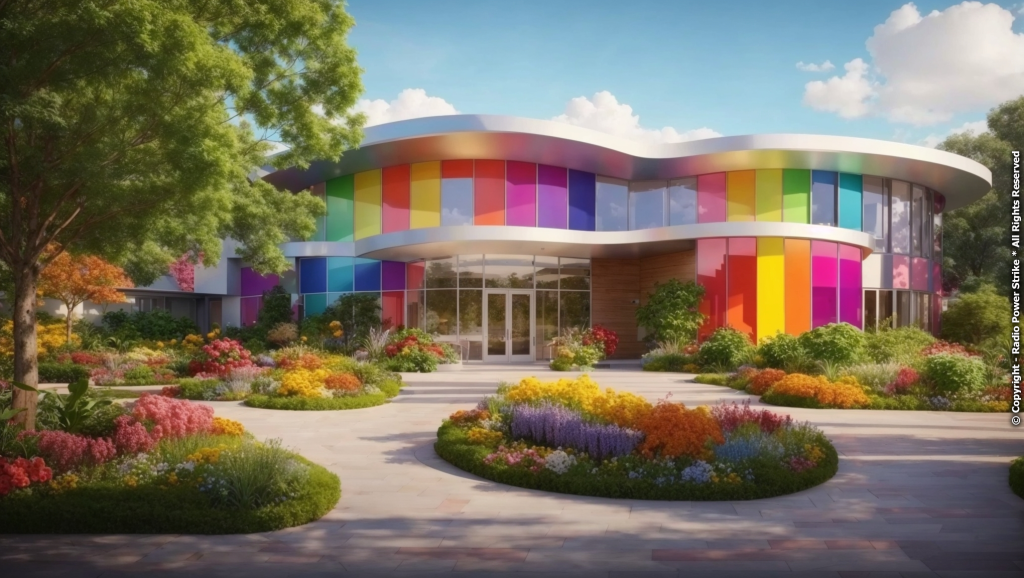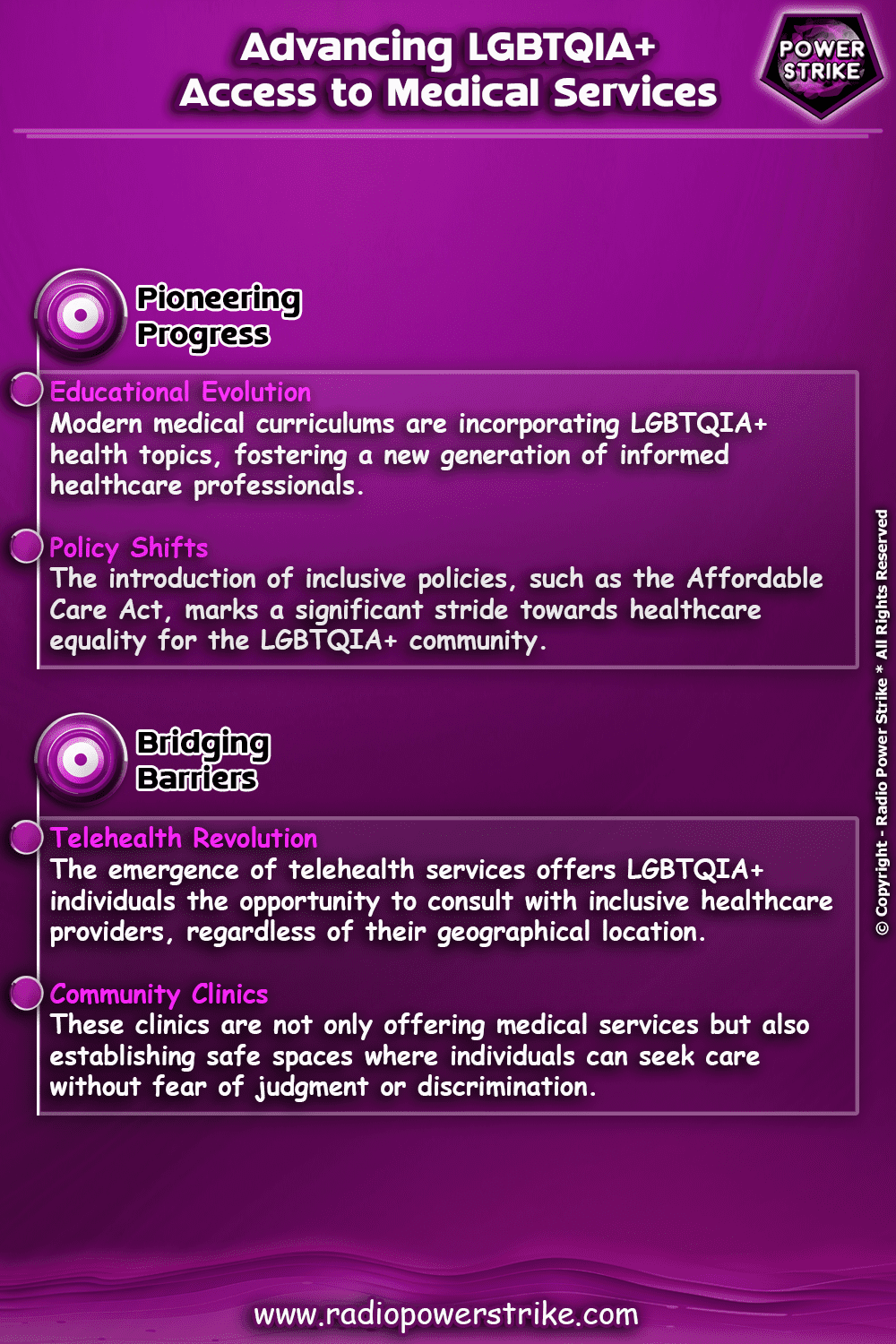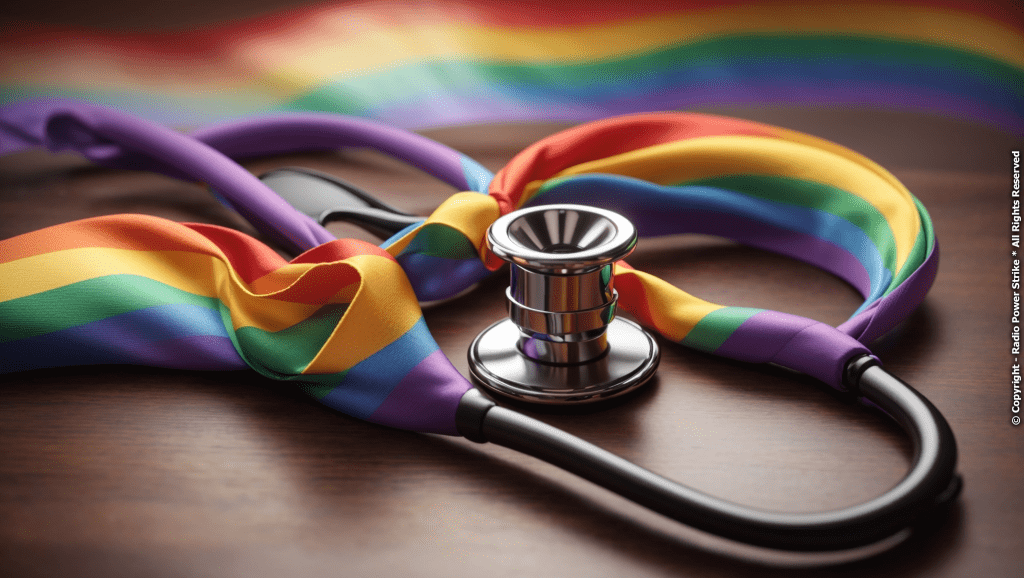Healthcare Equality: Advancing LGBTQIA+ Access to Medical Services
Bridging the Gap: Ensuring Inclusive and Comprehensive Healthcare for the LGBTQIA+ Community

Healthcare is a fundamental right, yet the LGBTQIA+ community has historically faced barriers in accessing quality medical services. Discrimination, lack of understanding, and societal prejudices have often stood in the way. However, with growing awareness and advocacy, strides are being made towards ensuring that the LGBTQIA+ community receives the healthcare they deserve, free from bias and discrimination.
Historical Challenges and Modern Struggles
Historically, the LGBTQIA+ community has faced significant challenges in accessing healthcare. From being classified as having a “mental disorder” to facing outright discrimination from medical professionals, the journey has been fraught with obstacles. For instance, until 1973, homosexuality was listed as a mental illness by the American Psychiatric Association.
Even today, many LGBTQIA+ individuals face discrimination when seeking medical care. Transgender individuals, in particular, often encounter medical professionals who lack the training or understanding to provide appropriate care, leading to misdiagnoses or inadequate treatment.
Moreover, societal stigmas and prejudices still persist, making many LGBTQIA+ individuals hesitant to seek medical care for fear of discrimination or judgment.
Advancements and Advocacy
Despite the challenges, there have been significant advancements in LGBTQIA+ healthcare. Organizations like the World Professional Association for Transgender Health (WPATH) have set standards of care for transgender individuals, ensuring they receive appropriate medical attention.
Furthermore, advocacy groups and LGBTQIA+ activists have been instrumental in pushing for inclusive healthcare policies. For instance, the Affordable Care Act in the U.S. prohibited discrimination based on gender identity or sexual orientation, a significant step forward.
Medical schools are also increasingly incorporating LGBTQIA+ health into their curriculums, ensuring that future doctors are equipped to treat all patients with respect and understanding. This shift in education is crucial in changing the landscape of healthcare for the LGBTQIA+ community.

The Way Forward: Inclusive and Comprehensive Care
The future of LGBTQIA+ healthcare lies in inclusive and comprehensive care. Medical facilities are increasingly adopting LGBTQIA+-friendly policies, from inclusive paperwork to staff training on LGBTQIA+ health issues. For example, Fenway Health in Boston is renowned for its LGBTQIA+ care, offering services tailored to the community’s unique needs.
Telehealth services are also emerging as a boon for the LGBTQIA+ community, allowing individuals to consult with LGBTQIA+-friendly doctors regardless of their location. This is especially beneficial for those in areas where such services are scarce.
Moreover, community clinics and LGBTQIA+ health centers are playing a pivotal role in providing accessible and inclusive care. These centers not only offer medical services but also serve as safe spaces where individuals can seek care without fear of judgment or discrimination.
The journey towards healthcare equality for the LGBTQIA+ community is ongoing. While challenges remain, the progress made is undeniable. Through continued advocacy, education, and policy changes, the goal of ensuring that every LGBTQIA+ individual has access to quality, inclusive medical care is within reach. As society continues to evolve, the hope is that healthcare for the LGBTQIA+ community will not just be an afterthought but a standard.

Glossary
Telehealth
A method of delivering healthcare services through digital platforms, allowing for remote medical consultations and follow-ups, which is especially beneficial for individuals in areas where certain services are scarce.
WPATH (World Professional Association for Transgender Health)
An international organization dedicated to promoting inclusive, evidence-based healthcare standards for transgender and gender-diverse individuals.
Fenway Health
A healthcare organization in Boston known for offering inclusive and specialized health services for the LGBTQIA+ community, including medical care, research, and advocacy.
Affordable Care Act
A healthcare law in the US that, among other things, prohibited discrimination based on gender identity or sexual orientation in accessing healthcare services.
Frequently Asked Questions
What is WPATH and what role does it play in LGBTQIA+ healthcare?
WPATH, or the World Professional Association for Transgender Health, is an organization that works to promote inclusive, evidence-based healthcare standards for transgender and gender-diverse individuals. They are a vital source of education and resources for healthcare professionals and patients alike.
How has the Affordable Care Act benefited the LGBTQIA+ community?
The Affordable Care Act prohibited discrimination based on gender identity or sexual orientation, ensuring that LGBTQIA+ individuals have equal access to quality healthcare without biases.
What are telehealth services and how do they benefit the LGBTQIA+ community?
Telehealth services allow individuals to consult with doctors and other healthcare professionals through digital platforms, which can be especially beneficial for members of the LGBTQIA+ community in areas where services are scarce or where they may face discrimination.
How are community and LGBTQIA+ health centers helping to promote equality in healthcare?
These centers provide accessible and inclusive healthcare, serving as safe spaces where individuals can seek care without fear of judgment or discrimination. They are vital in promoting health and well-being within the LGBTQIA+ community.
What is Fenway Health and what role does it play in promoting LGBTQIA+ health?
Fenway Health is a healthcare organization in Boston that is renowned for its specialized LGBTQIA+ health services, offering medical care, research, and advocacy that are specifically tailored to meet the unique needs of the community.
How is medical education changing to promote a better understanding of LGBTQIA+ health?
Medical schools are increasingly incorporating LGBTQIA+ health into their curriculums, ensuring that future doctors are equipped to treat all patients with respect and understanding, which is crucial in changing the landscape of healthcare for the LGBTQIA+ community.
What are some of the historical challenges the LGBTQIA+ community has faced in accessing healthcare?
Historically, the LGBTQIA+ community has faced significant barriers in accessing healthcare, including being classified as having “mental disorders” and facing direct discrimination from medical professionals. These challenges have been a significant obstacle to accessing quality healthcare.

Comments are closed, but trackbacks and pingbacks are open.